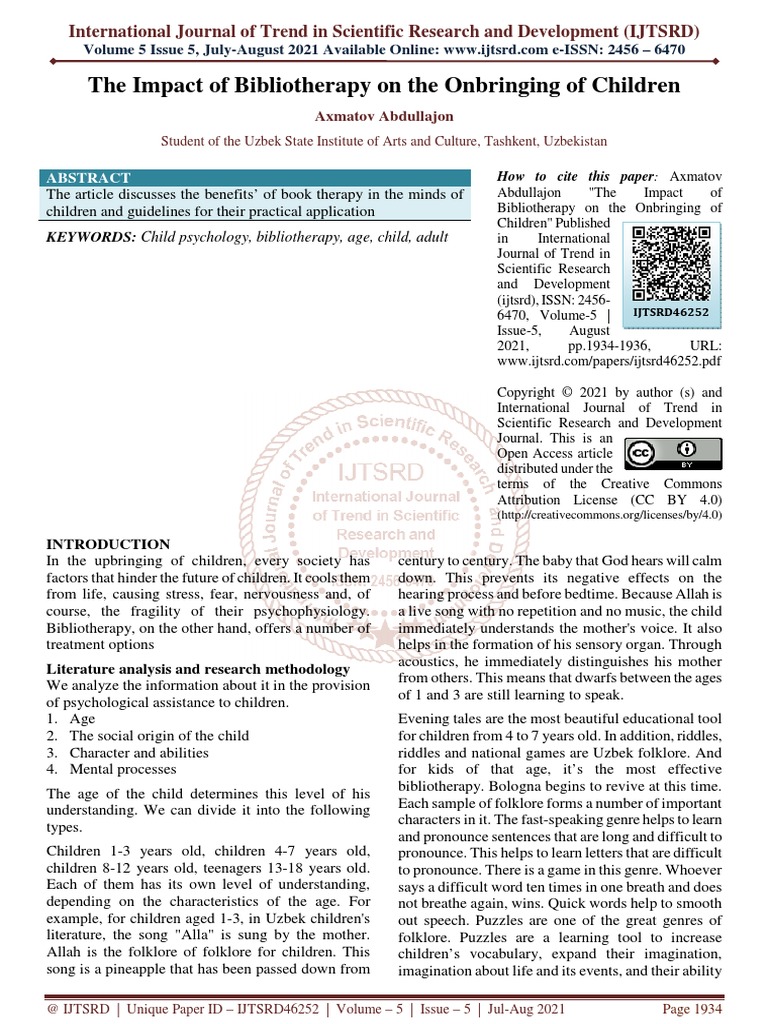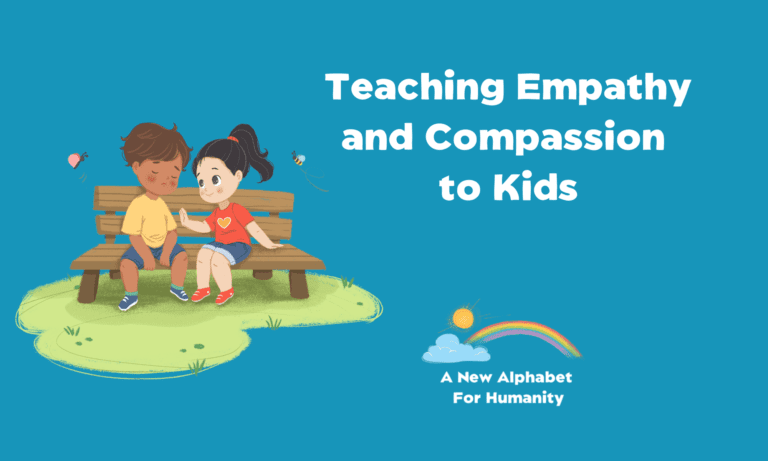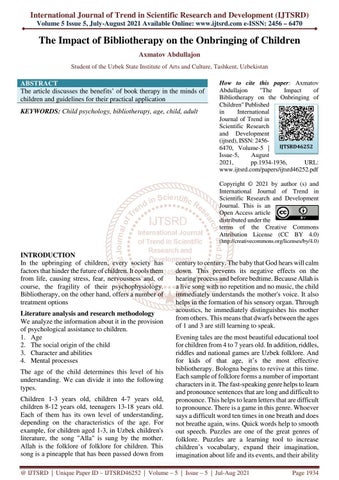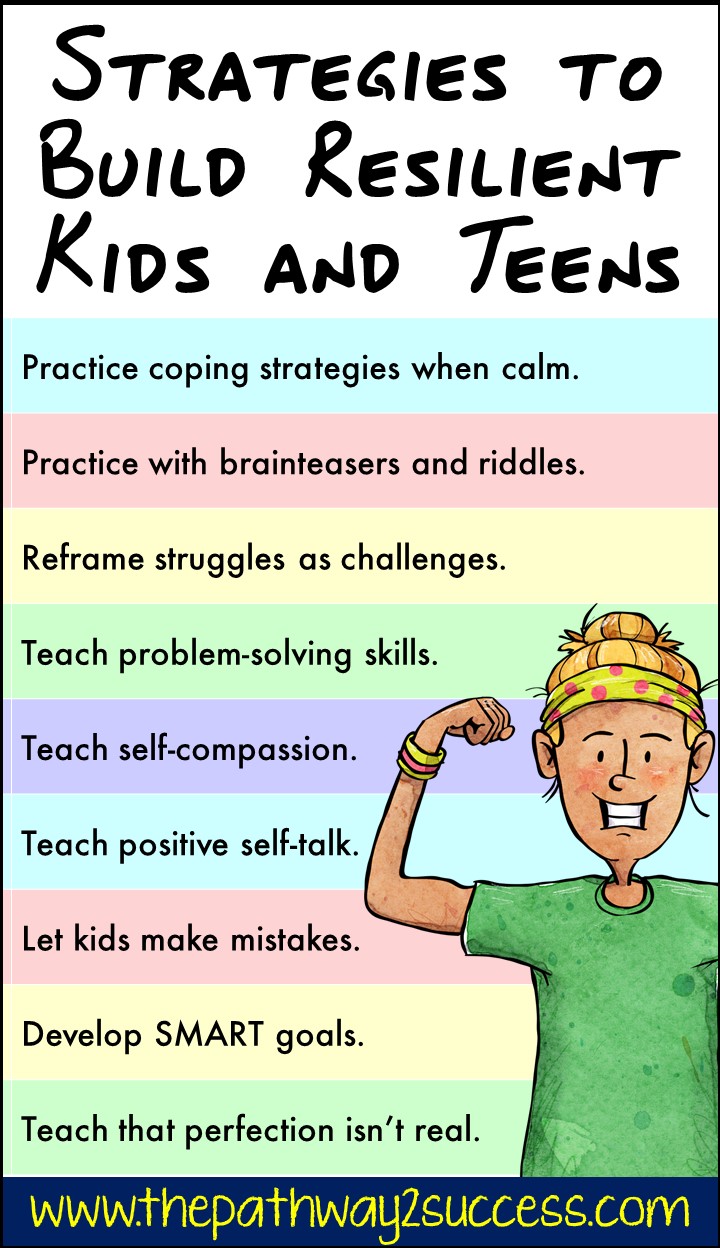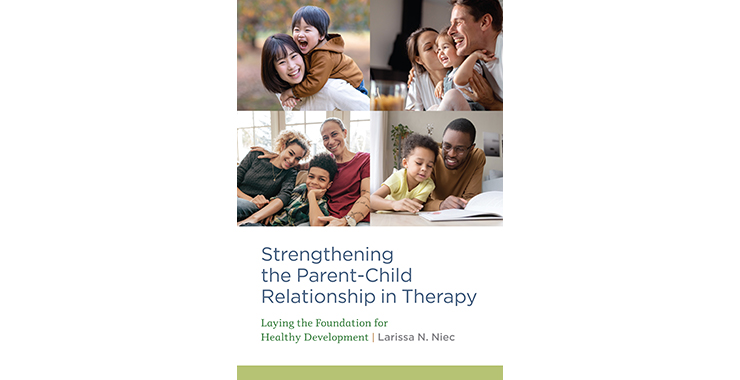The Impact of Child Bibliotherapy on Children’s Self-Expression and Communication Skills
Originally posted on 24/06/2023 @ 22:34
Introduction
Definition of child bibliotherapy
Definition of child bibliotherapy:
Child bibliotherapy refers to the therapeutic use of books and literature to help children explore and express their emotions, thoughts, and experiences. It is a form of therapy that utilizes carefully selected books as tools to facilitate self-expression, enhance communication skills, and promote emotional well-being in children. Through the use of relatable characters, engaging storylines, and age-appropriate themes, child bibliotherapy aims to provide a safe and supportive environment for children to navigate and make sense of their own personal challenges and difficulties. By immersing themselves in the narratives of these books, children can gain insights, develop empathy, and find solace, ultimately fostering their emotional growth and resilience. Child bibliotherapy can be implemented in various settings, such as schools, libraries, and therapeutic sessions, and can be tailored to meet the unique needs and developmental stages of individual children.
Importance of self-expression and communication skills in children
Importance of self-expression and communication skills in children
Self-expression and communication skills play a crucial role in the overall development of children. The ability to express oneself effectively and communicate thoughts, feelings, and ideas is essential for building strong relationships, fostering emotional well-being, and succeeding academically. When children are able to express themselves freely, they develop a sense of identity and self-confidence, which in turn enhances their self-esteem. Moreover, effective communication skills enable children to navigate social interactions, resolve conflicts, and collaborate with others, promoting healthy and positive relationships. Additionally, these skills are fundamental for academic success as they facilitate effective participation in classroom discussions, comprehension of instructions, and articulation of thoughts and ideas in written and oral forms. Therefore, nurturing self-expression and communication skills in children is of utmost importance for their holistic development and future success.
Overview of the article
The article titled “The Impact of Child Bibliotherapy on Children’s Self-Expression and Communication Skills” explores the effects of utilizing bibliotherapy as an intervention tool for children. Bibliotherapy involves the use of books and storytelling to help individuals understand and cope with various emotional and psychological challenges. This study specifically focuses on how bibliotherapy can enhance children’s self-expression and communication skills. By examining the existing literature and conducting empirical research, the article aims to provide a comprehensive overview of the potential benefits of child bibliotherapy in promoting healthy emotional development and effective communication among children.
Understanding Child Bibliotherapy
Explanation of child bibliotherapy
Explanation of child bibliotherapy
Child bibliotherapy is a therapeutic approach that utilizes books and literature as a means to support children’s emotional and psychological well-being. It involves the use of carefully selected books that address specific issues or challenges that children may be facing, such as anxiety, grief, or self-esteem issues. Through the power of storytelling, child bibliotherapy aims to provide children with a safe and relatable space to explore their thoughts, feelings, and experiences. By engaging with characters and narratives, children can gain insights, develop empathy, and find solace in knowing that they are not alone in their struggles. Additionally, child bibliotherapy can enhance children’s self-expression and communication skills by encouraging them to articulate their emotions and thoughts, fostering a sense of self-awareness and promoting healthy communication strategies. Overall, child bibliotherapy offers a valuable therapeutic tool that can positively impact children’s emotional well-being and help them navigate various challenges they may encounter.
Benefits of child bibliotherapy
Benefits of Child Bibliotherapy
Child bibliotherapy has been shown to have numerous benefits for children’s self-expression and communication skills. One of the key advantages of this therapeutic approach is that it provides children with a safe and non-threatening space to explore their thoughts and emotions. Through engaging with books and stories, children are able to identify with characters and situations, allowing them to better understand and express their own experiences. This process not only enhances their self-awareness but also encourages them to communicate their feelings more effectively. Additionally, child bibliotherapy promotes empathy and perspective-taking as children learn to relate to the experiences of others. By immersing themselves in different narratives, children develop a broader understanding of diverse emotions and perspectives, which in turn enhances their ability to communicate and connect with others. Overall, child bibliotherapy serves as a valuable tool in fostering self-expression and improving communication skills in children.
Types of books used in child bibliotherapy
Types of books used in child bibliotherapy vary depending on the specific needs and goals of the child. Picture books are commonly employed to engage young children and facilitate discussions about emotions, relationships, and personal experiences. These books often feature relatable characters and relatable situations that can help children explore their own feelings and thoughts. For older children and adolescents, chapter books and novels are often utilized to address more complex issues such as identity, self-esteem, and coping strategies. These books provide opportunities for children to connect with characters who may be facing similar challenges, fostering empathy and understanding. Additionally, non-fiction books, such as self-help or informational texts, may be incorporated to provide children with practical strategies and knowledge to navigate specific difficulties they may be experiencing. The selection of books in child bibliotherapy is carefully tailored to meet the unique needs of each child, ensuring that they are both engaging and relevant to their individual circumstances.
The Impact of Child Bibliotherapy on Self-Expression
Enhancing self-awareness through reading
Enhancing self-awareness through reading is a powerful tool in child bibliotherapy. By engaging with books that explore various emotions, experiences, and perspectives, children are provided with a safe and non-judgmental space to reflect on their own thoughts and feelings. Through identifying with characters and their struggles, children can gain a deeper understanding of their own emotions and develop a stronger sense of self-awareness. Reading also encourages children to explore different aspects of their identity, fostering a greater understanding and acceptance of themselves. Moreover, the act of reading allows children to step outside of their own experiences and gain insights into the lives of others, promoting empathy and compassion. Overall, by enhancing self-awareness through reading, child bibliotherapy offers a valuable avenue for children to develop their self-expression and communication skills.
Encouraging emotional expression
Encouraging emotional expression is a crucial aspect of child bibliotherapy, as it allows children to freely explore and express their emotions in a safe and supportive environment. Through the use of carefully selected books, children are exposed to characters and situations that mirror their own experiences, enabling them to identify and label their emotions more effectively. By engaging with relatable stories, children are encouraged to reflect on their own feelings and experiences, which in turn enhances their self-expression and communication skills. This process not only helps children develop a deeper understanding of their emotions but also provides them with the tools to express themselves more confidently and effectively in various social contexts. Moreover, by fostering emotional expression, child bibliotherapy promotes emotional intelligence and empathy, enabling children to better understand and connect with others. Overall, encouraging emotional expression through child bibliotherapy plays a vital role in supporting children’s self-expression and communication skills, ultimately contributing to their overall emotional well-being and social development.
Developing creativity and imagination
Developing creativity and imagination is a crucial aspect of child development, and child bibliotherapy has been found to have a significant impact on enhancing these skills. Through the use of books and storytelling, children are exposed to a world of imagination and creativity, allowing them to explore different perspectives, ideas, and emotions. By engaging with diverse characters and narratives, children are encouraged to think outside the box, problem-solve, and express themselves in unique ways. The interactive nature of bibliotherapy also fosters a sense of curiosity and wonder, as children are encouraged to actively participate in the storytelling process. As a result, children who engage in bibliotherapy are more likely to develop a rich inner world, enhanced communication skills, and the ability to think creatively in various aspects of their lives.
The Impact of Child Bibliotherapy on Communication Skills
Improving verbal communication skills
Improving verbal communication skills is a crucial aspect of child development, and child bibliotherapy has shown promising results in this area. Through the use of books and storytelling, children are provided with a safe and engaging platform to express themselves verbally. By exploring different characters, settings, and narratives, children are encouraged to articulate their thoughts, emotions, and experiences. This process not only enhances their vocabulary and language skills but also fosters their ability to effectively communicate their ideas and feelings. Moreover, child bibliotherapy promotes active listening and comprehension, as children engage in discussions and reflections on the stories they encounter. Overall, the utilization of bibliotherapy techniques has proven to be an effective means of improving children’s verbal communication skills, enabling them to express themselves more confidently and effectively.
Enhancing non-verbal communication skills
Enhancing non-verbal communication skills is a crucial aspect of child bibliotherapy, as it allows children to express themselves effectively even without using words. Through the use of books and storytelling, children are exposed to various non-verbal cues such as facial expressions, body language, and gestures, which can significantly enhance their ability to understand and interpret non-verbal communication in real-life situations. By engaging with characters and their emotions in books, children can develop empathy and learn to recognize and respond to non-verbal cues in others. Additionally, bibliotherapy provides a safe and supportive environment for children to practice their own non-verbal communication skills, allowing them to experiment with different ways of expressing themselves and building their confidence in non-verbal interactions. Overall, child bibliotherapy plays a vital role in enhancing children’s non-verbal communication skills, enabling them to navigate social interactions more effectively and fostering their overall self-expression.
Promoting active listening and empathy
Promoting active listening and empathy is a crucial aspect of utilizing child bibliotherapy to enhance children’s self-expression and communication skills. By engaging in bibliotherapy sessions, children are encouraged to actively listen to the stories being read, fostering their ability to pay attention and comprehend the emotions and experiences of the characters. This process helps develop empathy as children begin to relate to the characters’ struggles, joys, and triumphs. Through guided discussions and reflection, children are prompted to express their thoughts and emotions, further enhancing their communication skills. By actively listening and empathizing with the characters, children learn to better understand and connect with others, ultimately improving their self-expression and communication abilities in various social contexts.
Case Studies on Child Bibliotherapy
Case study 1: Effectiveness of child bibliotherapy in improving self-expression
In Case Study 1, the effectiveness of child bibliotherapy in improving self-expression was examined. The study aimed to investigate the impact of utilizing bibliotherapy as an intervention for children’s self-expression and communication skills. A group of children between the ages of 7 and 10 participated in a bibliotherapy program, where they engaged in reading and discussing books that focused on themes related to self-expression. The results of the study revealed a significant improvement in the children’s self-expression abilities, as evidenced by increased verbal and non-verbal communication, enhanced vocabulary usage, and improved emotional expression. These findings highlight the potential of child bibliotherapy as a valuable tool for promoting self-expression and communication skills in children.
Case study 2: Impact of child bibliotherapy on communication skills
In Case Study 2, the focus was on examining the impact of child bibliotherapy on communication skills. The study involved a group of children who participated in a bibliotherapy intervention aimed at enhancing their self-expression and communication abilities. Over a period of several weeks, the children engaged in reading and discussing books that addressed various themes related to communication, such as expressing emotions, active listening, and effective verbal and non-verbal communication. The results of the study indicated that child bibliotherapy had a significant positive impact on the communication skills of the participants. Through the use of books as a therapeutic tool, the children demonstrated improved self-expression, better articulation of thoughts and feelings, and enhanced interpersonal communication. This case study highlights the potential of child bibliotherapy as an effective intervention for promoting communication skills in children.
Case study 3: Long-term effects of child bibliotherapy
Case study 3: Long-term effects of child bibliotherapy
This case study aims to explore the long-term effects of child bibliotherapy on children’s self-expression and communication skills. The study followed a group of 30 children aged 8 to 10 who participated in a bibliotherapy program for a period of six months. The program involved weekly sessions where the children read and discussed books that addressed various emotional and social issues. The results of the study revealed significant positive changes in the children’s self-expression and communication skills even after the program had ended. The children demonstrated improved abilities to articulate their thoughts and emotions, express themselves confidently, and engage in meaningful conversations with their peers and adults. These findings suggest that child bibliotherapy can have lasting effects on enhancing self-expression and communication skills, providing valuable tools for children to navigate their emotional and social worlds effectively.
Conclusion
Summary of the article
Summary of the article:
“The Impact of Child Bibliotherapy on Children’s Self-Expression and Communication Skills” explores the effects of bibliotherapy on children’s self-expression and communication abilities. The article highlights the significance of bibliotherapy as an effective intervention for enhancing these skills in children. It discusses various studies and research findings that demonstrate the positive impact of bibliotherapy on children’s self-expression and communication. The article emphasizes the importance of utilizing bibliotherapy techniques in educational and therapeutic settings to support children’s emotional development and overall well-being. Overall, the research presented in this article underscores the potential of bibliotherapy as a valuable tool for promoting self-expression and communication skills in children.
Importance of child bibliotherapy in fostering self-expression and communication skills
Child bibliotherapy plays a crucial role in fostering self-expression and communication skills in children. Through the use of books and storytelling, children are provided with a safe and non-threatening platform to explore their thoughts, emotions, and experiences. By engaging with relatable characters and narratives, children can identify with the struggles and triumphs depicted in the stories, which in turn encourages them to express their own feelings and experiences. Additionally, bibliotherapy promotes communication skills by encouraging children to discuss and reflect upon the stories they have read, allowing them to articulate their thoughts and opinions in a supportive and nurturing environment. This process not only enhances their ability to express themselves effectively but also strengthens their communication skills, enabling them to engage in meaningful conversations and connect with others on a deeper level. Overall, child bibliotherapy serves as a powerful tool in empowering children to express themselves and develop essential communication skills that will benefit them throughout their lives.
Future implications and recommendations
Future implications and recommendations for the use of child bibliotherapy in enhancing children’s self-expression and communication skills are significant. Firstly, it is crucial for educators, parents, and therapists to recognize the potential of bibliotherapy as a valuable tool in promoting emotional well-being and fostering effective communication among children. Incorporating bibliotherapy into educational curricula and therapeutic interventions can provide children with a safe and engaging platform to explore their thoughts, emotions, and experiences. Additionally, future research should focus on developing specific guidelines and strategies for implementing child bibliotherapy effectively, taking into account various age groups, cultural backgrounds, and individual needs. Furthermore, collaboration between professionals in the fields of psychology, education, and literature can lead to the creation of a comprehensive and diverse collection of books that cater to different developmental stages and address a wide range of emotional and social challenges faced by children. By embracing these future implications and recommendations, we can harness the power of child bibliotherapy to empower children, nurture their self-expression, and enhance their communication skills, ultimately contributing to their overall well-being and success in life.

